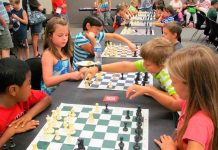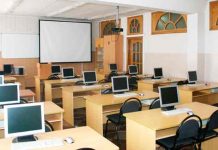Омбоева Наталья Антоновна
кандидат педагогических наук, учитель МОУ лицей №3 г.Волгограда
Класс: 6
Предмет: английский язык
УМК: Английский язык. 6 класс : учеб. для общеобразоват. учреждений /
[Ю. Е. Ваулина, Дж. Дули, О. Е. Подоляко, В. Эванс]. – 2-е изд.- М.: Express Publishing : Просвещение, 2008. – 136 с.: ил. – (Английский в фокусе)
Тема учебного занятия: «Безопасность на дороге»
Место урока в учебном плане: Module 3 «Getting around»; 3a «Road safety»
Продолжительность учебного занятия: 40 минут
Тип учебного занятия: урок
Тип урока: комбинированный
План-конспект урока
Цель урока: научить обучающихся составлять инструкцию по безопасности движения, высказываться по теме «Правила дорожного движения».
Задачи:
-
Активизировать употребление лексики по теме «Транспорт, правила уличного движения» и повелительного наклонения.
-
Совершенствовать навыки аудирования, чтения и говорения по теме «Правила уличного движения».
-
Развивать умение работать в группе, развивать чувство взаимопомощи.
Режим работы: фронтальный, индивидуальный, парный, групповой.
Виды упражнений: языковые, условно-речевые, речевые.
Оснащение урока: компьютер (презентация), мультимедийный проектор, экран, доска, картинки, магниты, рабочие листы учащихся (раздаточный материал).
Ход урока
| Деятельность учителя | Деятельность обучающихся | |
| I. Вводная часть.
II. Основная часть урока
Рефлексия.
| Good afternoon! I am glad to see you. Let’s remember how you go to school? Учитель на доске показывает на картинки (школа и миниавтобус). Под картинками написано “minibus”. I live far from school so I go by minibus and what about you?
Учащиеся по очереди подходят к доске, показывают на картинку и отвечают. Учитель убирает картинки, под ними слова с предлогами (by bus, by car, on foot). Учитель вслух произносит “by bus, by car, on foot”.
Речевая зарядка. Which of these things can you see on the road (on your way to school)? Are you careful? Фронтальный режим работы (T—P1; P2; P3). Cлайд 1. Учащиеся смотрят на экран (картинки) и отвечают.
Read and match the word and the word definition. P1-P2, P3-P4, P5-P6, P7-P8, P9-P10. Cлайд 2.
a) A person who is on foot, not by car/ bike, etc. b) White stripes on the road. People can cross the road on it. c) A sign on the road. d) An area which people use for walking. e) A name of a job. This person watches the traffic and makes it safe. f) A place where you can park a car. Учитель хвалит учащихся. You are smart and know this.
Объявление темы урока. We know much about transport and signs. But it is very important to be safe on the roads. What are we going to speak at the lesson? Слайд 3. 1. To speak how to behave at lessons 2. To speak how to behave at school 3. To speak how to be safe on the road and make the instruction
Работа над языковым материалом Задание 1 Now, please, think in groups, go to the blackboard and place the sentences correctly. What is dangerous and what is safe on the roads? Use “It’s safe to, it’s dangerous to”. На доске магнитами прикреплены листы бумаги с фразами: wear a seat belt walk straight across the road walk on the pavement look both ways when you cross the road talk to the driver cross between parked cars look for a zebra crossing push others when you enter the bus lean out of the window run onto the road
Задание 2 And now we know what is safe and what is dangerous to do on the roads. Let’s make instructions how to be safe on the street, in the car and on the bus. You are on the street. You are in the car. You are on the bus. What do you do and what don’t you do. Учитель раздает ситуации по группам. Слайд 4.
When on the street When in the car When on the bus wear a seat belt. Sit in the back if you are under 12 don’t talk to the driver and don’t lean out of the window look both ways before crossing. Don’t run onto the road
Задание 3 And now give your partner instructions when your partner wants to ride a bike, to travel in a car, to travel on a bus I want to ride a bike. Give me instructions. Ask your friend to be careful. Слайд 5.
Задание 4 I know how to be safe, now you know how to be safe, let everybody know how to be safe. Let’s write instructions together. Can you use in a proper way? Look at the pictures and give your instructions. Учитель раздает картинки по группам и памятки «Как вести себя на улице». Don’t cross between cars Wait a bus only on the pavement Move your bike near while crossing Don’t play on the road Go on the pavement taking the right side Look for a zebra crossing on a traffic lights crossing Look left, then right, while crossing the road Cross the road on the green colour of the traffic lights Don’t run on the road
Учитель снимает картинки, скрепляет и прикрепляет обложку. These are our safety rules.
Подведение итогов урока. What did we do at our lesson? How do you like the lesson? Учитель раздает смайлики по группам. Now we know how to be safe on the road. Can you tell this instruction to your mum, to your Granny, to your Dad? And our book will help you.
Look at each other and let’s put marks for help.
Учитель дает домашнее задание. Слайд 6. Write down your homework. For all Workbook: p.17, ex.2 Who wants Tell your parents about road safety in English and make a poster about safety rules. The next lesson we will discuss. Good bye.
| Good afternoon! I am glad to see you too.
I go to school on foot. I go to school by bus. I go to school by car of my father.
Parking zone Pedestrian Traffic sign Traffic warden Zebra crossing Pavement Traffic lights Yellow lines
Обучающиеся в парах обсуждают, совмещают слова и определения и читают вслух. 1f 2a 3b 4e 5d 6c
Обучающиеся выбирают, чем будут заниматься на уроке To speak how to be safe on the road and make the instruction
Обучающиеся в группах обсуждают, по очереди подходят к доске и прикрепляют магнитами листы с предложениями. Затем вслух читают предложения.
It’s dangerous to walk straight across the road. It’s safe to look both ways before crossing the road. It’s dangerous to run onto the road. It’s dangerous to talk to the driver. It’s safe to walk on the pavement. It’s dangerous to lean out of the window.
Обучающиеся получают ситуации, в группах обсуждают и отвечают.
When on the street look both ways before crossing. Don’t run onto the road. When in the car wear a seat belt. Sit in the back if you are under 12. When on the bus don’t talk to the driver and don’t lean out of the window.
P1 I want to ride my bike P2 Wear a bicycle helmet. Never carry a second person. Make sure your bike is in a good condition. P3 I want to travel in a car P4 Wear a seat belt. Sit in the back if you are under 12. P5 I want to travel on a bus P6 Don’t talk to the driver and don’t lean out of the window.
Обучающиеся в группах обсуждают, подписывают картинки и читают вслух надписи, прикрепляют на доску подписанные картинки. 1. Go on the pavement taking the right side 2. Look for a zebra crossing on a traffic lights crossing 3. Cross the road on the green colour of the traffic lights 4. Look left, then right, while crossing the road 5. Don’t run on the road 6. Don’t cross between cars 7. Wait a bus only on the pavement 8. Wear a seat belt 9. Move your bike near while crossing 10.Don’t play on the road 11. Go on the pavement taking the right side
Играли, говорили о безопасности на дорогах, составили инструкцию. Высказывают свое мнение об уроке.
Обучающиеся записывают домашнее задание.
Good bye.
|





